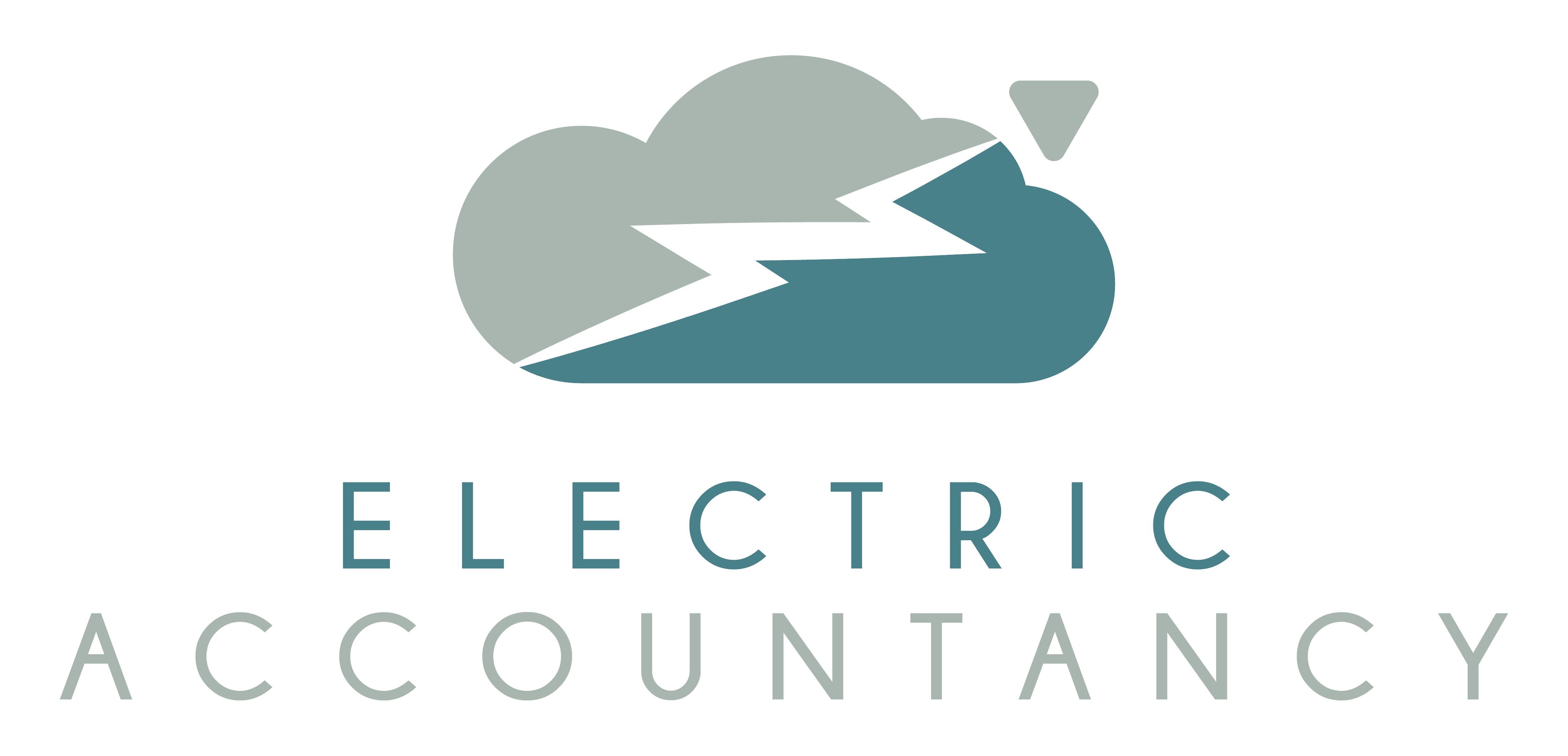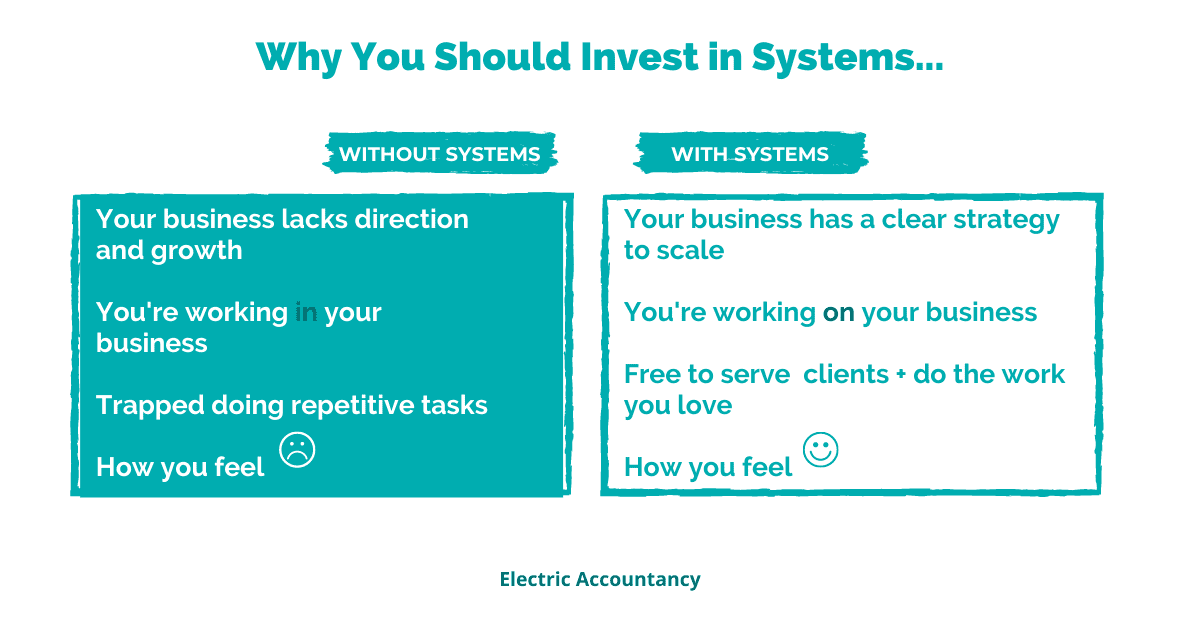Successful businesses rely on systems rather than just people.
Exceptional people are important, but if the business is only great because of the exceptional people, what happens when they leave, or when you need more of them?
A business system is simply a documented procedure or set of procedures that outline how things should be done in your business, so you reduce reliance on individuals.
Consider the following 3 businesses and think about which one is going to be the most attractive to an investor or purchaser:
Business A This business has some basic systems. But most of what it does is not systematised. If key people aren’t around, some things don’t get done particularly well (and sometimes they don’t get done at all.)
The owner works 47.5 hours a week (which is the average for the owner of a UK small business). The owner just about manages to take four weeks of holiday a year. In other words, it is a typical and very average small business.
This business has been independently valued at £100,000.
Business B This business has no systems at all. The business owner drives everything, and as a result works 60 hours a week sorting out problems, covering for absent staff, fighting fires and making things happen.
The owner never has time for things like planning, and only manages to take 2 weeks holiday a year – but the whole time is spent worrying about how everyone is coping and whether things are being done correctly.
Given that Business A was worth £100,000, how much would you be prepared to pay for this business?
Business C This business has systems for everything. The systems contain everything everybody needs to know to run the business effectively and profitably. They are also continuously tested and improved. And everybody knows exactly what they are and how they work. So everybody uses them.
As a result the business owner usually works 35 hours a week and took six weeks off as holiday last year (the owner was happy that everyone knew what to do and that everything would work perfectly).
So, given that Business A was worth £100,000, how much would you be prepared to pay for this business?
What does business systemisation mean?
A systemised business is one that has defined processes in place to maximise efficiency. It means defining step-by-step how each process or function in the business should work.
Step 1: Define the processes
The first stage in systemising a business is to introduce a set of guidelines for how the business operates, so that the company operations are predictable.
You should aim to find the most efficient practices for all critical tasks and make sure these practices are always followed.
When a business has well-defined rules for how things should be done, it will achieve a consistent quality level and be less affected by human error.
Step 2: Document the processes
Once the processes have been defined, the next step is to document them and review them so you understand their effectiveness and can decide whether any need adjusting.
A functional business process should be reduced to the smallest number of easily repeatable steps. With clear and detailed documentation, your processes will be understandable for everyone involved in delivering them.
Well-documented processes are much easier to communicate, outsource and automate.
Step 3: Automate if you can
The next step is to decide whether some of the processes can be automated.
It is likely that you will have plenty of systems that don’t involve any automated processes at all. The key is to find the most efficient balance between human intervention and automated systems.
So the challenge is to understand:
-
How much of your business you can/should automate
-
How the efficiency of both automated and manual processes can be maximised
-
Which technology is worth investing in, given how rapidly things are changing.
What kind of processes can you systemise?
Just about every business process can be systemised to some extent but this doesn’t necessarily mean that every process is worth systemising.
The thing to remember is that systemisation isn’t about perfection and also, that you don’t have to start off big.
For example, you can start by reviewing your basic, everyday tasks and systemising and possibly automating them. From there you can be move onto more complex processes such as:
-
Manufacturing processes
-
Lead generation
-
Sales & lead nurturing
-
Quotes, proposals & invoices
-
Customer service & after sales support
-
Complaints handling
The benefits of systemising your business
Benefit #1. Improved Customer Satisfaction
If your business operates by strict guidelines, it will appear more reliable to customers. Building trust and being dependable is critical. It helps attract customers and can turn the existing ones into loyal repeat customers.
Benefit #2. Better Time Management
When your business is systematic in the way that it operates, it will free up your time, so you can focus on the activities that will help your business to improve and grow. In addition, you can take time off in the knowledge that it will run effectively and efficiently in your absence.
Benefit #3. Increased Productivity
Businesses that lack procedures often have employees that have their own way of doing things. This results in inefficiencies and inconsistency, whereas standardisation means finding optimal solutions to regular tasks. If done correctly, it can improve the company’s overall productivity and make the output easier to predict.
Benefit #4. Reduced Errors & Costs
Having standardised processes means it is easier to evaluate and improve them in the future. With standardisation, even complex operations can be optimised, if they are broken down into smaller, well-defined steps. You can use this to reduce the costs associated with manual errors & inefficiencies.
Benefit #5. More Efficient Use Of Resources
New employees will have an easier time fitting into the company’s operations if the processes are standardised. They will get up to speed faster and require less oversight by existing staff. Existing staff will work more efficiently and effectively because they’ll know exactly what needs to be done and how to do it.
Benefit #6. Better Scalability
Systemisation is essential for a business that wants to grow – you need processes in place to generate a higher volume of leads and sales, but more crucially, you need processes that allow your business to handle the sales when they roll in.
Benefit #7. A Company That Is Worth More
A systematised business is worth more money. Research undertaken by AVN suggests that people will pay almost 87% more for a systemised business, so systemisation increases the value of your business.
Summary
Systems help you to improve customer and employee satisfaction, boost sales and profits, give you your life back and increase the value of your business. 😃

